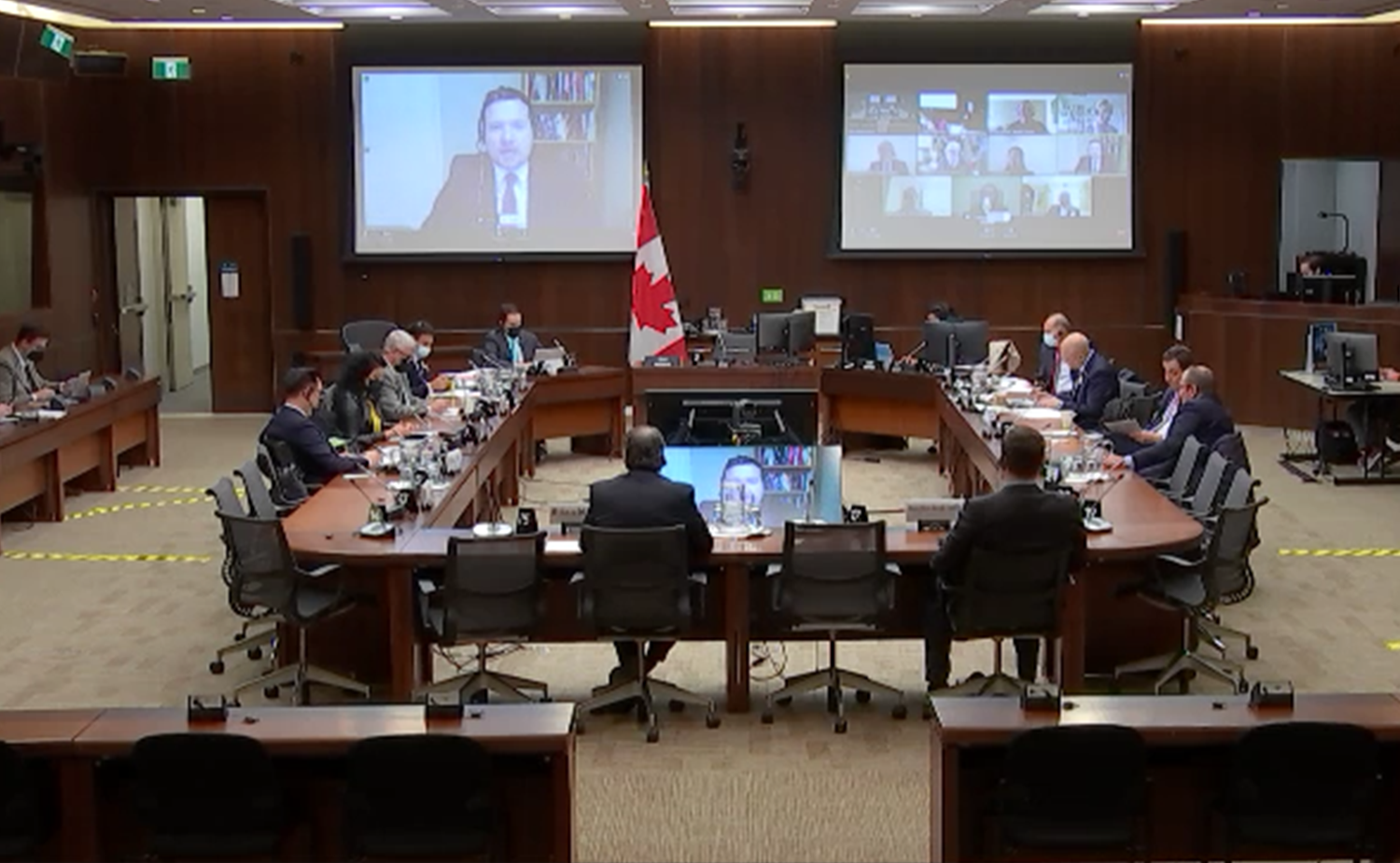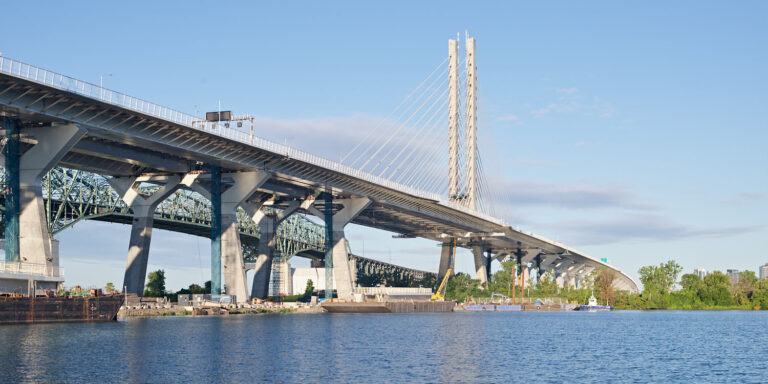Blog /
Canadian Chamber outlines priorities for House Committee studying the Canada-Ukraine trade agreement
Canadian Chamber outlines priorities for House Committee studying the Canada-Ukraine trade agreement
On April 4, 2022, Canadian Chamber of Commerce Senior Vice President, Policy and Government Relations, Mark Agnew, appeared before the...

On April 4, 2022, Canadian Chamber of Commerce Senior Vice President, Policy and Government Relations, Mark Agnew, appeared before the House of Commons Standing Committee on International Trade Study on the Trade Implications of the Conflict in Ukraine and modernizing the Canada-Ukraine Free Trade Agreement. Beyond the profound human tragedy, the impacts of the conflict on trade are wide-ranging and will be long-lasting. In his remarks, Agnew details several priorities Ottawa should undertake, including addressing inflationary pressures, sanction consistency, continued information sharing, safe shipping navigation, ensuring an integrated industrial defence strategy, and Canada doing its part to help reduce dependence on Russian natural resources.
Mark Agnew’s Opening Statement
Check against delivery
Chair and honourable members, it is a pleasure to be back at this Committee.
I want to state at the outset our profound shock at the human tragedy unfolding in Ukraine, which is nothing short of a strike against the rule of law and international norms that underpin our democratic societies.
In the few moments available, I want to cover both what the conflict has meant for Canadian businesses, and what we should do looking ahead.
Besides the obvious geopolitical uncertainty that is disruptive for businesses, there are a number of specific impacts on businesses from the conflict.
Foremost among these has been the aggravation of inflationary pressures. According to the most recent Canadian Survey on Business Conditions, half of businesses expect rising inputs costs to be a challenge over the next three months, which is up 8% from the previous quarter. This conflict – such as through rising commodities – will only fuel inflation.
There are also the impacts to commercial shipping through the Black Sea. Recent reports from various media outlets have highlighted work by Turkey to disarm mines in the Black Sea with allegations of more mining occurring in the area. Put simply, this places commercial shipping at risk both today and in the future even after the conflict ends.
Lastly, as reported in the media there are a number of companies that have pulled back from their operations in Russia. The Canadian Chamber has also made its contribution by ceasing to issue certificates of origin for Canadian exports bound for Russia.
The Committee’s motion of March 21 asked what we should be doing in response to the conflict from an economic standpoint. I would like to mention five items today.
First, sanction symmetry. Sanctions mean Western countries will feel pain in order to do the right thing. Therefore, Canada should continue to press our allies to ensure they maintain a high-standard, and consistent, approach in the application of sanctions.
Second, our government needs to continue to ensure clear and regularly updated guidance is provided to businesses. We are in a fluid situation and I would like to acknowledge the tireless work of the Trade Commissioner Service to keep up with announcements. I urge the TCS to continue to do so to provide companies the latest info.
Third, Canada should support efforts to ensure a safe navigation through the Black Sea for commercial traffic.
Fourth, we need a better integration between our defence policy and our defence industrial policy. This conflict has underscored the importance of a strong defence industrial base and increase in investments in defence need to be done wisely. The once in a generation modernization of NORAD is a case in point where we need to ensure strong government-industry collaboration.
Finally, we also need to increase our efforts to contribute to global energy security. The path to net zero only becomes feasible with access to a wide range of energy sources and we have to step-up to the plate if we want Europe to reduce dependency on Russia. There is equally an opportunity for our critical minerals as the world turns away from Russia, but we need to build out more robust supply chains domestically.
In closing, what is happening right now is nothing short of a seismic event whose implications are not yet fully understood. This conflict presents serious choices for the government, Parliamentarians, and businesses, in addition to all our allies. More than ever, Canada needs to project strength at home and abroad. This is a chance to be a leader on the global stage.
I want to thank the Committee for initiating this timely study and look forward to your questions.
Other Blogs

Policy Matters: Why the B7 Is Important, Especially Now

Navigating Net Zero




